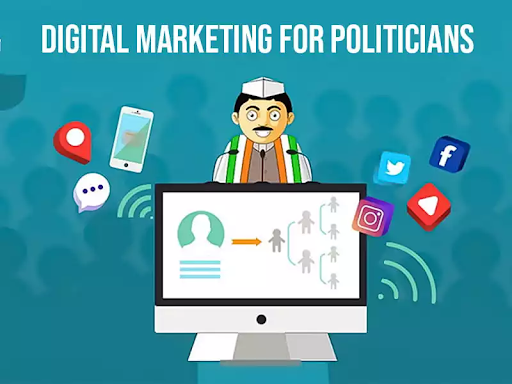Political marketing has become an integral part of the Indian political landscape. With the rise of social media and 24-hour news channels, political parties are relying heavily on marketing agencies to craft their image and sway public opinion in their favor. However, with great power comes great responsibility, and political marketing agencies often have to navigate through election-time scandals that can make or break a party’s chances at the polls.
In this article, we will take a closer look at how Indian political marketing agencies handle scandals during election time. We will explore the strategies they employ to contain damage, restore public trust, and maintain their client’s image.
Understanding Election-Time Scandals
Election-time scandals are events or controversies that garner widespread media attention and have the potential to negatively impact a political party’s reputation and electoral prospects. These scandals can range from financial improprieties, corruption charges, personal misconduct of party leaders to inflammatory statements made by party members.
Political marketing agencies play a crucial role in shaping public perception of these scandals and mitigating their effects on their clients. However, it is not an easy task as they must tread carefully to avoid appearing complicit or insincere.
Types of Election-Time Scandals
There are various types of election-time scandals that can occur during a political campaign. Some of the most common ones include:
- Financial Improprieties: These involve allegations of misuse or misappropriation of funds by a political party or its members. This can include accepting illegal donations, using public funds for personal gain, or engaging in fraudulent activities.
- Corruption Charges: This refers to accusations of bribery, kickbacks, or other forms of unethical behavior aimed at gaining an unfair advantage in the electoral process. Such charges not only tarnish the reputation of the accused but also cast doubt on their ability to govern ethically if elected.
- Personal Misconduct: These scandals involve the private behavior of political candidates or party leaders, which may be deemed scandalous or offensive by the public. This can include extramarital affairs, drug use, or other forms of misconduct.
- Inflammatory Statements: In a highly polarized political climate, even seemingly innocuous comments can spark outrage and lead to allegations of hate speech. Party members must be careful with their words to avoid being embroiled in such scandals.
Impact of Election-Time Scandals
Election-time scandals can have far-reaching consequences for both the accused party and its opponents. Some potential impacts include:
- Loss of Credibility: When a political party or its members are embroiled in a scandal, their credibility takes a massive hit. This makes it difficult for them to gain the trust of voters and could result in significant losses at the ballot box.
- Damage to Reputation: Scandals can permanently damage the reputation of a political party or its leaders, making it challenging for them to bounce back from the negative publicity.
- Shift in Public Opinion: Scandals have the potential to sway public opinion and change people’s perceptions of a particular candidate or party, affecting their chances of winning an election.
Containing Damage
The first step for any political marketing agency faced with an election-time scandal is damage control. This involves assessing the situation, determining the extent of damage and taking swift action to contain it. The agency must work closely with the party’s leadership to develop a crisis management plan that includes addressing the issue, acknowledging any wrongdoing, and initiating corrective measures.
For instance, during the 2019 Lok Sabha elections, a video surfaced showing BJP leader Pragya Singh Thakur making controversial remarks about Mahatma Gandhi’s assassin. The party’s marketing agency immediately advised her to apologize and issued a statement denouncing her statements. This move helped contain damage and defuse public outrage.
Assessing the Situation
The first step in containing damage is to assess the situation. The political marketing agency must gather all relevant information and analyze it to understand the impact of the scandal on the party’s image. This includes monitoring media coverage, public sentiment, and social media discussions related to the scandal. Additionally, conducting internal investigations can help determine who within the party may be involved and how much they are responsible for the issue.
Understanding Public Perception
Understanding public perception is crucial in developing an effective damage control strategy. The agency must know what people are saying about the scandal and how it is affecting their opinions of the party and its candidates. Social listening tools can provide valuable insights into public sentiment and help identify potential PR crises before they escalate.
Internal Investigations
Conducting internal investigations can help the agency determine the extent of involvement of party members in the scandal. This information is vital in deciding whether any disciplinary action needs to be taken, such as removing a candidate from the election race or issuing public apologies.
Restoring Public Trust
In addition to containing damage through immediate action, political marketing agencies also need to focus on restoring public trust in their client’s image. This involves crafting a narrative that mitigates the negative effects of the scandal and portrays the party in a positive light.
For example, during the 2013 Karnataka Assembly elections, the Congress party was embroiled in a cash-for-vote scandal. The marketing agency launched a campaign highlighting their commitment to eradicating corruption and promised to take strict action against those involved in the scandal. This helped restore public trust in the party’s integrity and played a crucial role in their victory.
Utilizing Social Media
Social media has become an essential tool for political marketing firms in India during election time. Not only does it provide an effective platform for disseminating information, but it also enables them to engage with the public directly. In cases of scandals, social media can be used to address public concerns, provide updates on the situation, and showcase the party’s efforts to rectify the issue.
During the 2018 assembly elections in Madhya Pradesh, a sex scandal involving a prominent leader of the Congress party came to light. The marketing agency utilized social media platforms to convey their stance on the issue and share information about steps being taken by the party to ensure justice for the victim. This helped control negative perceptions and maintain public trust in the party.
Managing Media Coverage
Media coverage plays a crucial role in shaping public opinion during election time. Political marketing agencies must work closely with media outlets to manage coverage of scandals. This involves providing accurate information, addressing any false or misleading reports, and maintaining transparency.
During the 2021 West Bengal assembly elections, a video of Trinamool Congress leader Mamata Banerjee allegedly asking people to vote for her party in exchange for government jobs went viral. The party’s marketing agency immediately issued a statement denying the allegation and provided evidence to refute it. They also worked with media outlets to ensure fair and accurate coverage of the incident, which helped mitigate its impact on the election results.


